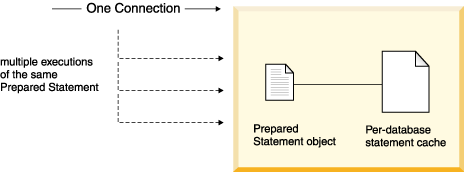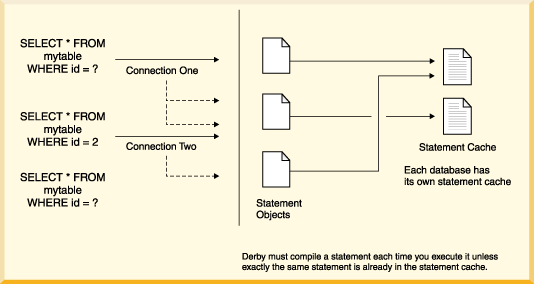- Your application can use PreparedStatements instead of Statements.
PreparedStatements are JDBC objects that you prepare (compile) once and execute multiple times. See the figure below. If your application executes statements that are almost but not exactly alike, use PreparedStatements, which can contain dynamic or IN parameters. Instead of using the literals for changing parameters, use question marks (?) as placeholders for such parameters. Provide the values when you execute the statement.

- Even if your statement uses Statements instead of PreparedStatements, Derby can reuse the statement
execution plan for the statements from the statement cache. Statements from
any connection can share the same statement execution plan, avoiding compilation,
by using the single-statement cache. The statement cache maintains statement
plans across connections. It does not, however, maintain them across reboots.
See the figure below.
When, in the same database, an application submits an SQL Statement that exactly matches one already in the cache, Derby grabs the statement from the cache, even if the Statement has already been closed by the application.
To match exactly with a statement already in the cache, the SQL Statement must meet the following requirements:
- The text must match exactly
- The current schema must match
- The Unicode flag that the statement was compiled under must match the current connection's flag
